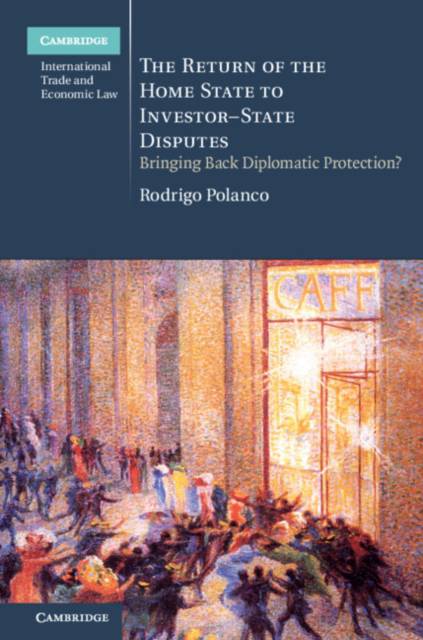
- Afhalen na 1 uur in een winkel met voorraad
- Gratis thuislevering in België vanaf € 30
- Ruim aanbod met 7 miljoen producten
- Afhalen na 1 uur in een winkel met voorraad
- Gratis thuislevering in België vanaf € 30
- Ruim aanbod met 7 miljoen producten
Zoeken
The Return of the Home State to Investor-State Disputes
Bringing Back Diplomatic Protection?
Rodrigo Polanco
€ 226,45
+ 452 punten
Omschrijving
This book advances the idea that in order to address some of the criticisms against investor-state dispute settlement, a large majority of states have taken a 'normative' strategy, negotiating or amending investment treaties with provisions that potentially give more control and greater involvement to the contracting parties, and notably the home state. This is particularly true of agreements concluded in the past fifteen years. At the same time, there is a potential revival of the 'remnants' of diplomatic protection that are embedded in investment treaties since the beginning of the system. But why is the home state being brought back into a domain from which it was expressly excluded several decades ago? Why would a home state be interested in intervening in these conflicts? Is this 'new' role of the home state in foreign investment disputes a 'return' to diplomatic protection of its nationals, or are we witnessing something different?
Specificaties
Betrokkenen
- Auteur(s):
- Uitgeverij:
Inhoud
- Aantal bladzijden:
- 372
- Taal:
- Engels
- Reeks:
Eigenschappen
- Productcode (EAN):
- 9781108473385
- Verschijningsdatum:
- 10/01/2019
- Uitvoering:
- Hardcover
- Formaat:
- Genaaid
- Afmetingen:
- 190 mm x 234 mm
- Gewicht:
- 635 g

Alleen bij Standaard Boekhandel
+ 452 punten op je klantenkaart van Standaard Boekhandel
Beoordelingen
We publiceren alleen reviews die voldoen aan de voorwaarden voor reviews. Bekijk onze voorwaarden voor reviews.








